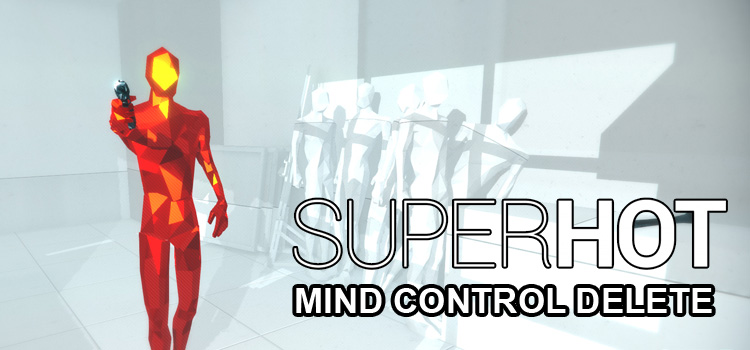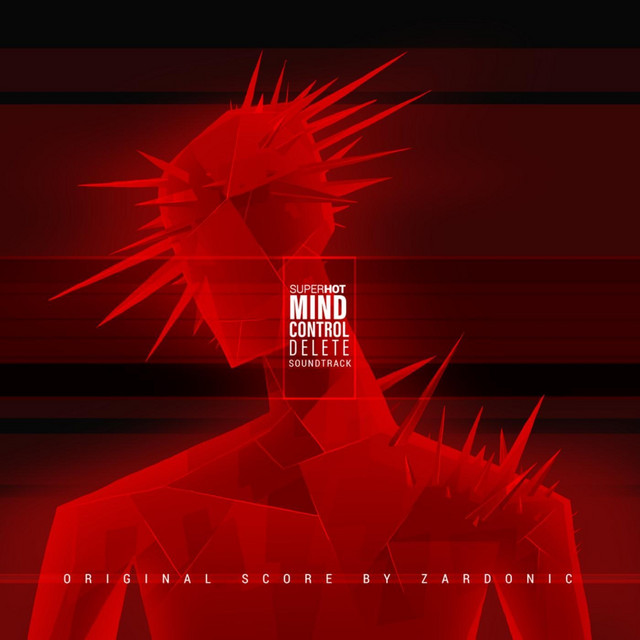

- #Superhot mind control delete developers disappeared full#
- #Superhot mind control delete developers disappeared Pc#
Those waves of enemies take place in one of 32 randomly generated spaces. But the core game lacks so much story - it's just wave after wave of enemies - that you can only guess as to why the ending is the way it is. If the story was clearer, perhaps the ending would make more sense, setting some context to allow gamers to consider and/or understand it. If you're going to do something different, try to bring people along with you. This is the Tracy Emin Bed equivalent of computer game art. It's interesting (in a way) for attempting to encourage the sort of critique you'd expect to see in the Arts and turn it into a critique of computer games - but it does it in the most infuriating way. It's a poorly thought-out ending to an otherwise disappointingly repetitive game.
#Superhot mind control delete developers disappeared Pc#
Whether you're environmentally aware or not (and we all kinda should be), I don't want my PC on for 8 hours or 2.5 hours running this game while I sleep. That shows the Developers' attitude: they want to force you to reflect on their game.

And that's no fun!" The idea that I'll finish the game then go to bed for 8 hours to "sleep on it" - while it's still running on my PC or console - is ridiculous. We actually considered the eight hours quite lenient - we started with 24 hours but that felt a bit too restrictive: you'd end the same time of day you ended the game yesterday. "You can leave it running overnight and have a fresh mind to see the results in the morning. "The arbitrary amount we shipped with was eight hours, a perfect time to sleep on the game "The arbitrary amount we shipped with was eight hours, a perfect time to sleep on the game you just finished we thought," co-director Marcin Surma said.

Additionally, without spoiling anything, the ending was, to me, completely unacceptable.

It only takes one or two hours for MCD to feel boring and repetitive. MCD feels less like puzzle solving and more like slow-motion survival. As a result, MCD feels like an interesting game built on the incorrect foundation-the game falls apart once the novelty of the new features is lost. The entire game design of Superhot was built on the foundation of a one-hit kill system. There is now an unknown kill quota required to complete each level, along with the player having multiple lives. In MCD, levels are procedurally generated, so you will inevitably play the same maps over and over again. Because of this, playing a level of Superhot in 2016 felt like solving a puzzle, as opposed to mindlessly gunning down enemies. Much of what made Superhot so enjoyable was that every level was carefully, individually crafted. However, the larger picture direction in which MCD chooses to go leads to a disappointing and overall boring experience. Superhot: Mind Control Delete builds upon its predecessor by adding new, creative enemy types along with a host of interesting gameplay Superhot: Mind Control Delete builds upon its predecessor by adding new, creative enemy types along with a host of interesting gameplay features. A familiar reflection of what the base game managed it may be, a slew of new threats, devious twists and further reinforcing of smart tactics to compensate for such unpredictability result in MIND CONTROL DELETE ending up a great addition to the SUPERHOT experience. While it’s easy to pick out the over-reliance on repeated environments, as much the disappointing lack of committing to the subversive elements of previous, there are just as many - if not more - new additions brought into the fold, that ultimately, rightfully, claim most of the attention.
#Superhot mind control delete developers disappeared full#
MIND CONTROL DELETE may feel more like a continuation of a good run, rather than a full expanding upon the foundation, but that doesn’t mean that what new features it does offer up fail in helping to bolster what still remains a fun and ingenious interpretation of first-person shooting and puzzle-solving fused together. More than four years on, SUPERHOT remains as instantly recognizable and immensely appealing a gameplay concept as it ever was on day one.


 0 kommentar(er)
0 kommentar(er)
